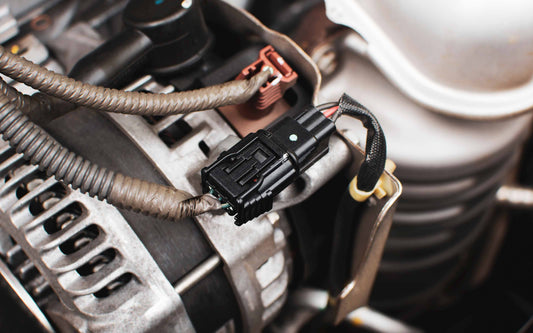For fleet owners, every mile counts—not just in terms of fuel efficiency, but also in keeping vehicles running safely and reliably. One often-overlooked component that can make a huge difference is the alternator. While standard alternators can handle basic electrical loads, modern fleets rely on a growing number of devices—from GPS systems and dashcams to refrigeration units and LED lighting. That’s where high-output alternators come in, offering a smarter, safer, and more cost-effective solution.
What Does a High-Output Alternator Do?
At its core, an alternator converts mechanical energy from the engine into electricity to power a vehicle’s electrical systems and recharge the battery. A high-output alternator does the same thing—but more efficiently and at a higher capacity. This is especially important for fleets that operate long hours or carry additional electronic equipment. A standard alternator may struggle under heavy loads, risking battery drain or electrical system failures. High-output alternators prevent these problems by delivering consistent power, even under demanding conditions.
How Upgrading Impacts Fleet Safety and Vehicle Health
Electrical reliability directly affects vehicle safety. A failing alternator can cause headlights to dim, critical sensors to malfunction, or even leave a truck stranded. Fleet owners must consider not only the immediate cost of a breakdown but also the long-term effects on vehicle health. Overworked alternators put extra strain on batteries and wiring, increasing maintenance expenses. By upgrading to high-output alternators, fleets experience smoother operation, longer battery life, and fewer unexpected repairs—ultimately protecting both drivers and vehicles.
Why It Makes Financial Sense
While an upgraded alternator requires an upfront investment, the financial benefits quickly become clear. Fewer breakdowns mean less downtime, reduced towing expenses, and lower maintenance costs. For commercial fleets, downtime can translate to lost revenue, missed deliveries, or unhappy clients. High-output alternators provide reliable power for critical systems, keeping vehicles on the road and operations running efficiently. Additionally, preventing battery and wiring issues extends the lifespan of key components, saving money over time.
Supporting Fleet Technology Needs
Modern fleets rely heavily on technology—from electronic logging devices (ELDs) and route optimization software to refrigerated transport systems. These tools all require steady electrical power. A standard alternator may not provide enough current, causing devices to underperform or fail. High-output alternators ensure that all electronic systems run without interruption, helping fleet owners maintain operational efficiency while keeping drivers safe and connected.
Make the Upgrade Today
Upgrading to high-output alternators is more than a maintenance choice—it’s a strategic investment in safety, efficiency, and cost savings for any fleet. By partnering with Pure Power, fleet owners can equip vehicles with reliable alternators designed to handle today’s demanding electrical loads. Ensure your trucks, vans, or service vehicles are prepared for every mile ahead.
Upgrade to a high-output alternator today and keep your fleet running at peak performance—contact Pure Power to learn more.
Frequently Asked Questions
How do I know if my fleet needs high-output alternators?
If your vehicles use multiple electronic devices, experience dimming lights, or have frequent battery issues, a high-output alternator can help.
Can high-output alternators improve fuel efficiency?
Indirectly, yes. By reducing electrical strain on the engine, vehicles operate more efficiently and maintain better overall performance.
Are high-output alternators compatible with all types of fleet vehicles?
Most standard and commercial vehicles can be upgraded, but a professional assessment ensures proper fit and performance.
How does a high-output alternator extend battery life?
It provides consistent electrical flow, preventing overwork of the battery and minimizing the risk of premature failure.
Is installation complicated?
Professional installation is recommended to guarantee optimal performance and avoid potential wiring or electrical issues.







